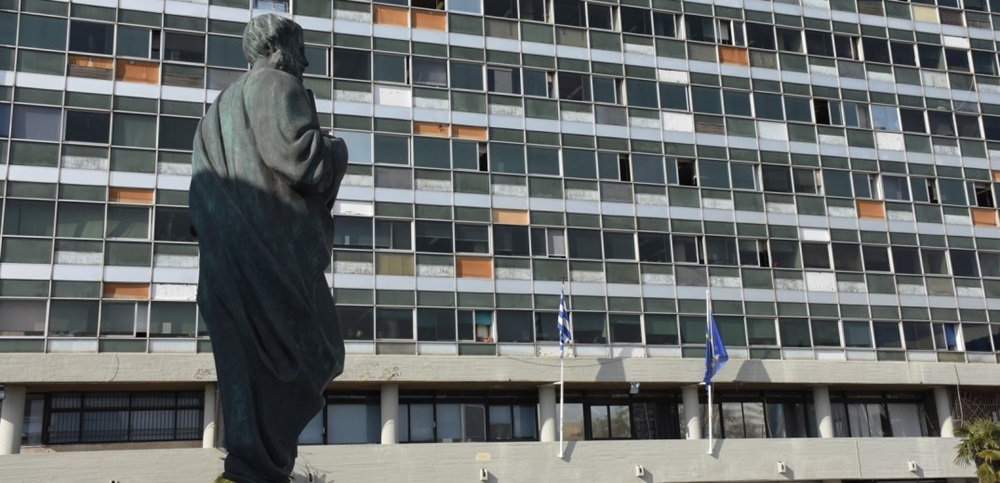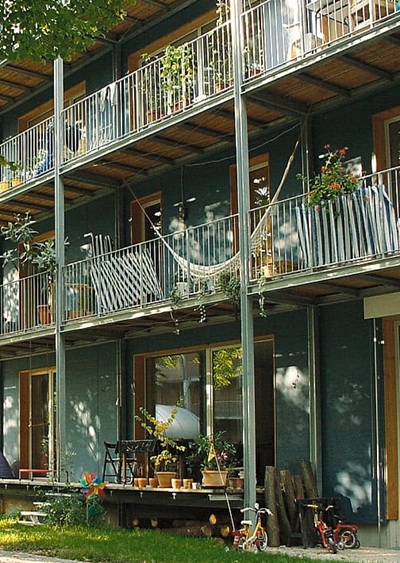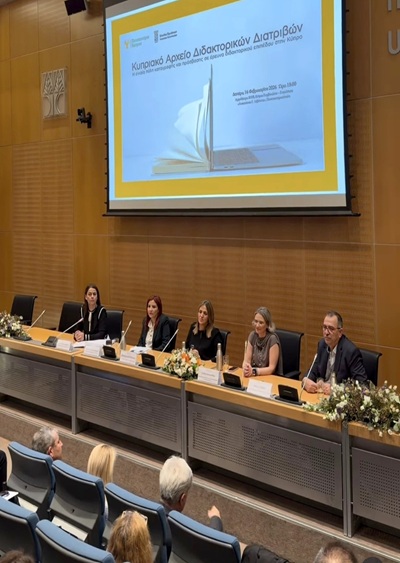
A two-day conference, entitled “The Protection of Cultural Heritage in Time of War – 70 years since the 1954 Hague Convention”, will be organized by the Faculty of Law of the Aristotle University of Thessaloniki in cooperation with the School of Humanities, Social and Economic Sciences of the International University of Greece and the Faculty of Law of the University of Nicosia, Cyprus, on Thursday 8 and Friday 9 May 2025, at the Ceremonial Hall of the Aristotle University of Thessaloniki.
The Conference is under the auspices of the Ministries of Culture of Greece and Cyprus. The event is supported by the Hellenic Committee of the Blue Shield and the A.D.I.S.P.O.
According to the organisers, the Conference will attempt to re-map the relationship between law, defence and culture on the troubled international horizon. “The network of participating institutions constitutes a multi-level alliance of universities, armed forces and institutional authorities for the protection of cultural heritage, a unique example of institutional synergy in Greece”.
A special feature of the Conference is the triple link between theory-practice-field. Academics, senior officers and executives of international organizations meet not only to map the risks to cultural heritage in wartime, but also to report their experiences from the field: from the typology of attacks on monuments to operational planning for the protection of cultural treasures and the legal actions envisaged for this purpose.
Original combination of theory, practice and fieldwork experiences
The agenda of the Conference is organised around four themes, which reflect its uniqueness. They address:
- the cultural dimension of Cypriot tragedy,
- field experiences from conflict zones,
- developments in international law; and
- the triple challenge of “prevention-suppression-remediation”.
In this way, legal theory, international protection systems and the practice of people on the front line – from Libya to Mali – are brought into conversation.
In total, more than 20 academics, lawyers, officers and officials of international organisations make up the programme, approaching cultural heritage as a factor of peace, but also as a “victim” of wars.
The first day: from Cyprus to Libya
Professor Emeritus Anastasia Grammatikaki-Alexiou opens the scientific part of the conference with a review of the Hague Convention. This will be followed by a session dedicated to the cultural dimension of the Cypriot tragedy, with the Dean of the Faculty of Law of the University of Nicosia Achilleas Aimylianides and experts in the repatriation of looted treasures. The focus then shifts to ‘live’ examples: the EULEAD III research team presents the post-war framework for the protection of Libyan heritage, while the President of the International Blue Shield, Professor Peter Stone, presents experiences from interventions on conflict fronts.
The second day: legal breakthroughs and business plans
On Friday, the focus is on legal developments: from the standardisation of the destruction of monuments as a war crime to the role of the UN collective security system and the International Criminal Court.
The conference is co-funded by the “Aristotle” action programme of the Hellenic Armed Forces, and the Special Account for Research Funds of the Aristotle University of Thessaloniki.
At a time when armed conflicts are increasingly affecting cultural heritage, Thessaloniki is becoming a forum where discourse and practice meet; where international law meets the needs of communities and academic research converses with operational plans. The two-day conference rendezvous aspires to bequeath, beyond findings, a solid network of preparedness between scholars, governmental bodies and cultural institutions.







Leave A Comment